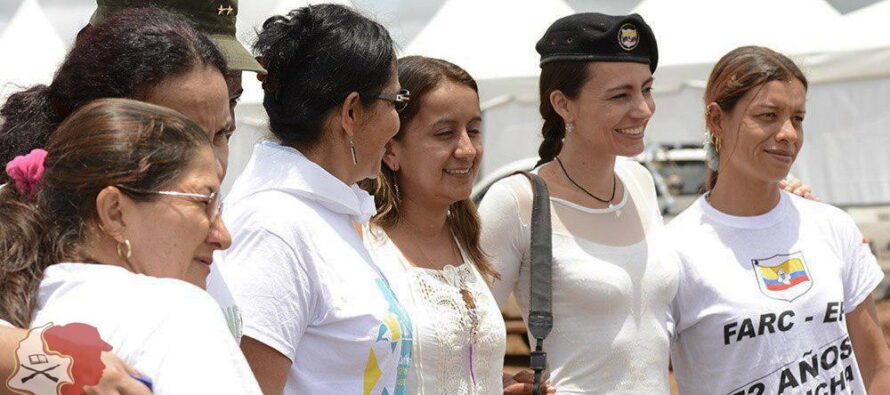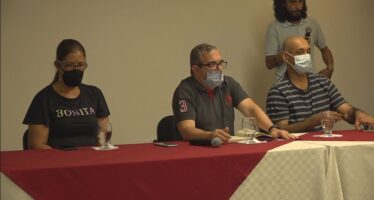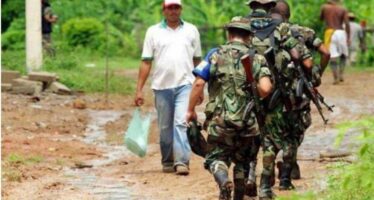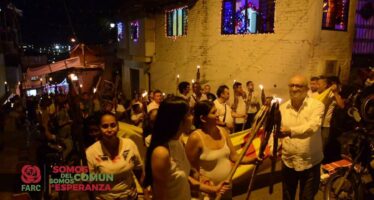Women and Gender discussed at X Guerrilla Conference

![]()
The issue debated today at the X Guerrilla National Conference is women and how the gender approach permeates the whole of the Final Agreement reached in Havana between the FARC-EP and the Colombian Government.
No doubt an important and new achievement of the peace talks carried out in Havana was the creation of a Gender subcommission on September 7, 2014. The Commission was created in order to “review and ensure, with support of national and international experts, that the partial agreements and the eventual final agreement have an appropriate gender approach”.
The situation of women in Colombia is complex, with different economic, political, social and cultural problems for Afro-Colombians, indigenous people, peasants and people from the city, among others.
The importance of the Gender subcommission lies in satisfying the expectations by social and women’s organizations in Colombia and the world regarding the peace talks as a starting point for seeking a solution to the problems of women and their human rights.
The FARC-EP considers that the fundamental role of the gender subcommission should be to meet the mandate of women’s organizations in Colombia and the world, expressed through the UN, by the Convention of 18 December 1979 on the Elimination of All Forms of Discrimination against Women and the various conferences and resolutions regarding women and gender, such as the Beijing Platform for Action of 1995 and the International Declaration of the rights of peasants and other people who work in rural areas, 2012, among others.
The inclusion of a gender perspective in a peace process such as this one is unprecedented in the world, and seeks primarily to create conditions for women and people with different sexual identity to be able to access on equal terms to the benefits of living in a country without armed conflict.
The Gender Subcommission reviewed and included gender perspective in the points of the General Agenda: 1: “Towards a New Colombian Countryside: Comprehensive Rural Reform”, 2: “Political Participation, Democratic opening to build peace”, 3: “End of Conflict”, 4: “Solution to the Illicit Drug Problem” and 5: “Victims”.
In the first point of the Final Agreement on the Comprehensive Rural Reform, one of the principles is that of “equality and gender”, which recognizes women as subjects of rights and dissociates the imaginary most have on the property of man and family of the bodies of women, to demand the guarantee that women can own land.
In the case of the point on illicit drug, the agreement states that there will be safeguards to ensure that women participate in the planning, implementation, monitoring and evaluation of the process of substitution and alternative development and are trained to combat drug-related violence that particularly affects women.
Regarding sexual violence, which has been classified by the women’s movement as a strategy of war and territorial control, it was managed to put it into the agreements as an offense that is not subject to amnesty. In addition, it was determined that the Peace Court of the Special Jurisdiction for Peace will have an Indictment Research Unit provided with a specialized team in the phenomenon of sexual violence.
The achievement has been that the gender approach built by the subcommission has been incorporated in each of the points agreed.
In order to achieve such a result, the negotiating table brought three times to Havana women’s organizations, activists, veterans, LGBTI and regional women leaders. All brought their proposals that contributed to the construction of a gender perspective for each point of the agreement. Proposals by civil society were also received through the mechanisms of virtual communication and the delegates of the guerrilla participated in multiple videoconferences with social and popular organizations, academic world and various communities for proposals, debate and feedback on visions, opinions and positions on gender.
Related Articles
FARC Party holds General Assembly
![]()
The left-wing FARC party, created after the signing of the Final Peace Agreement in Havana between the Colombian government and
Qué lucha armada, ni qué ocho cuartos
![]()
Era consciente de lo que habíamos sido las FARC como fuerza militar y política, un empeño que había costado más de medio siglo, en el que lo habíamos sacrificado prácticamente todo
Gabriel Angel (FARC): We Had Good Times
![]()
We get at the end of 2017 with the feeling that this year went even quicker than the others.




